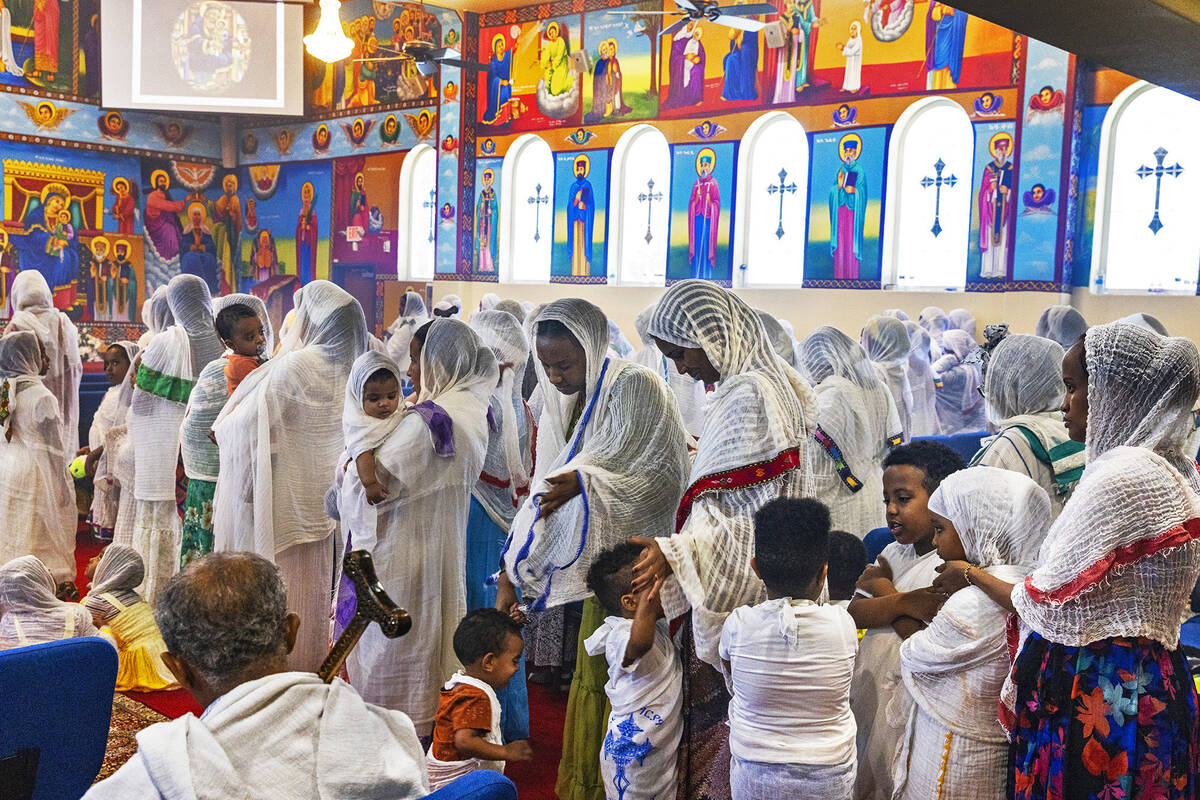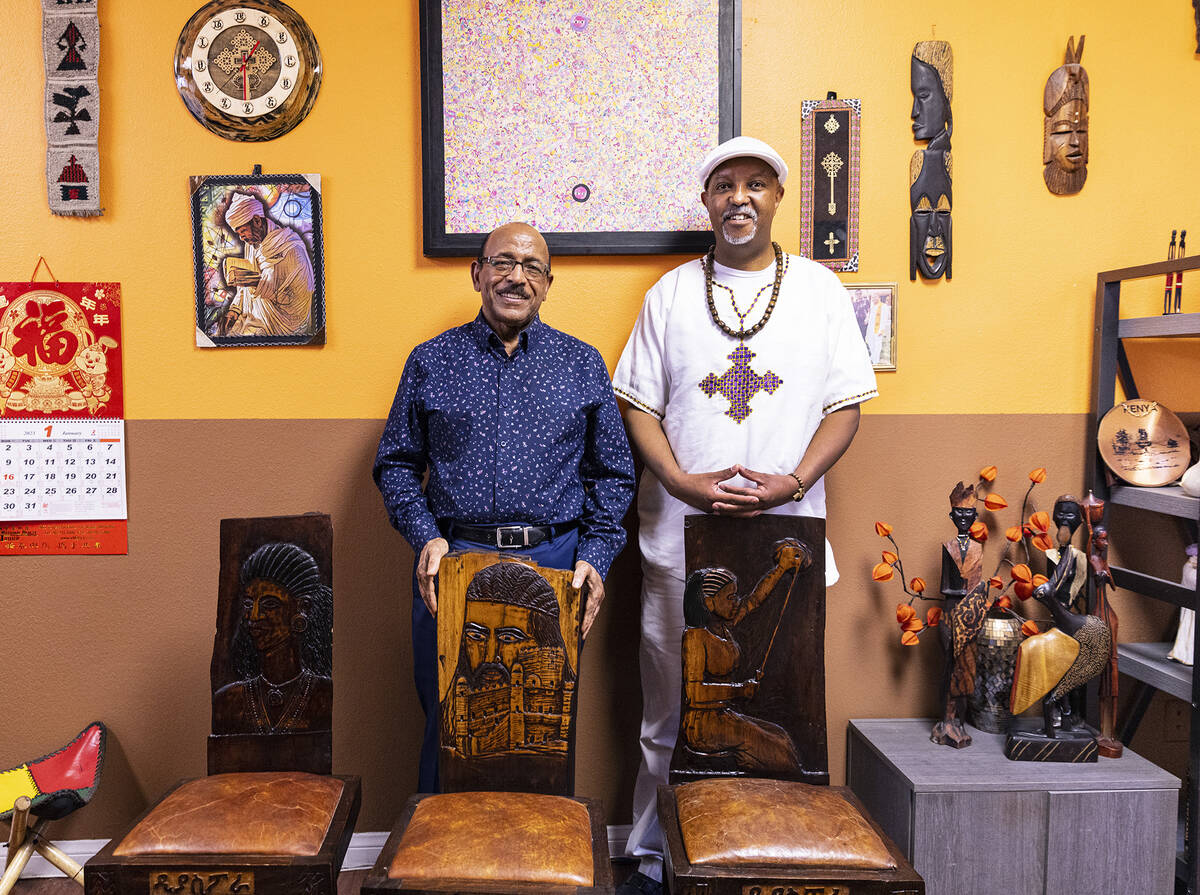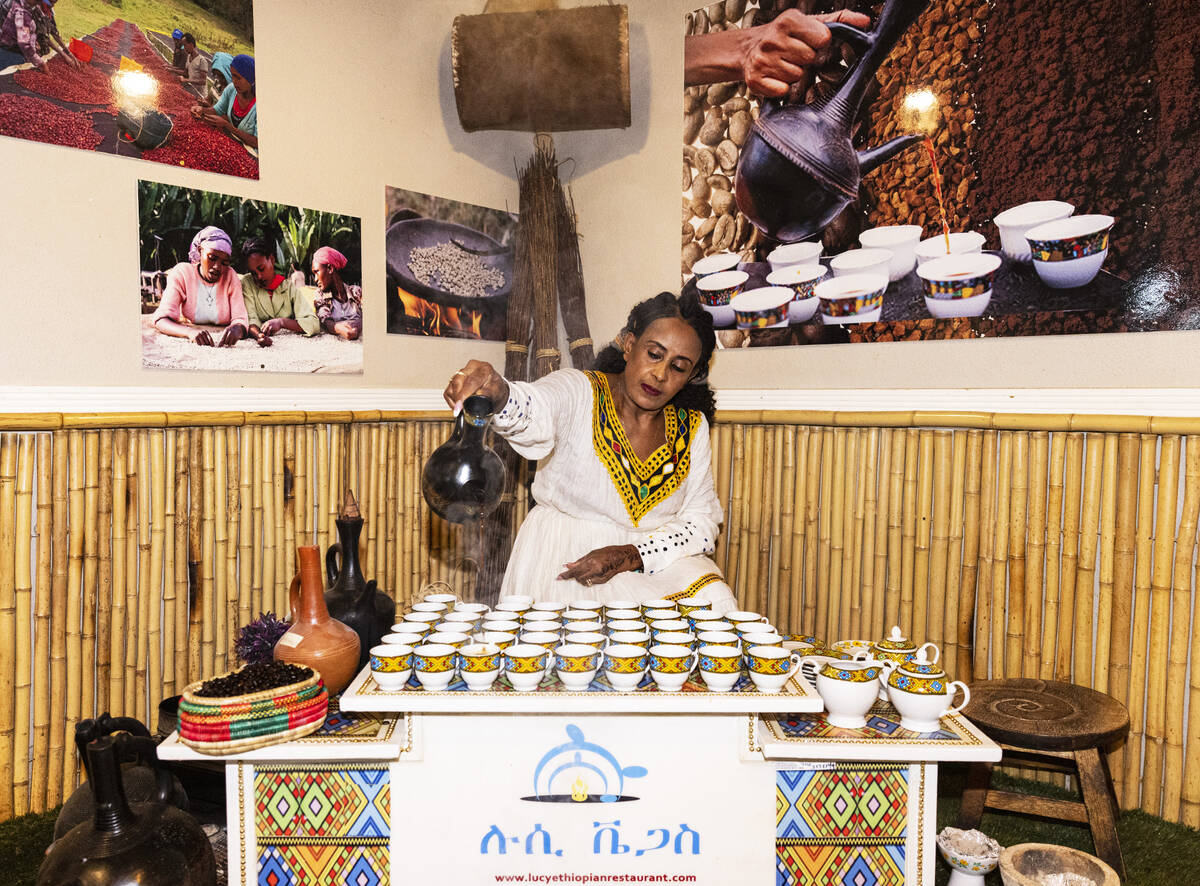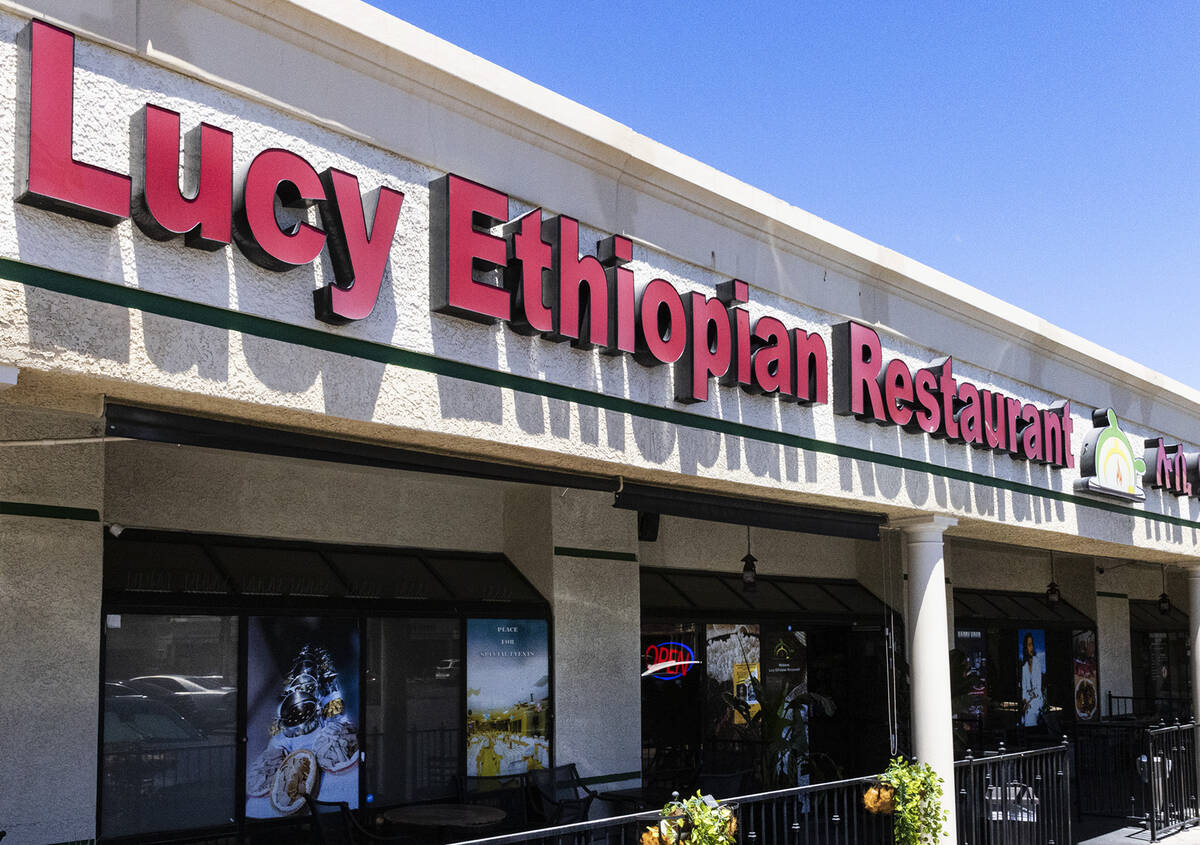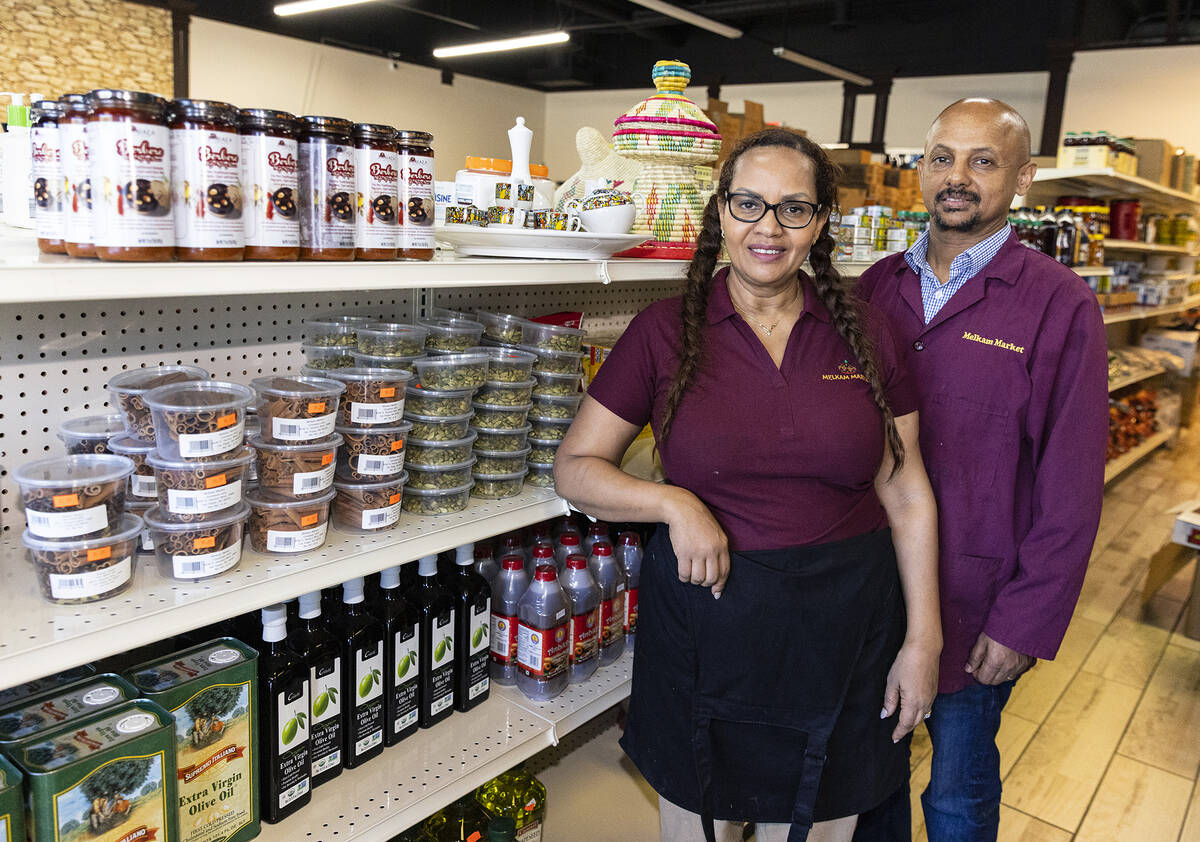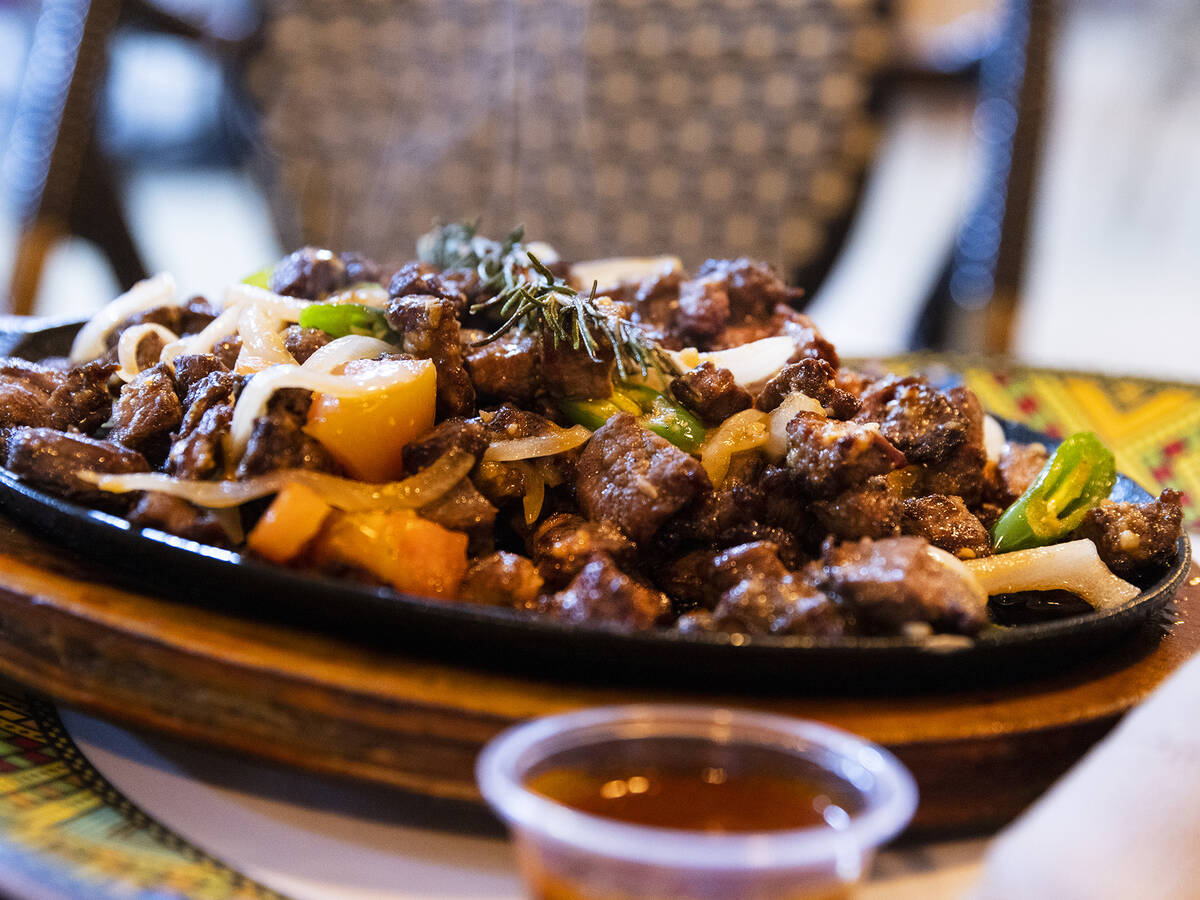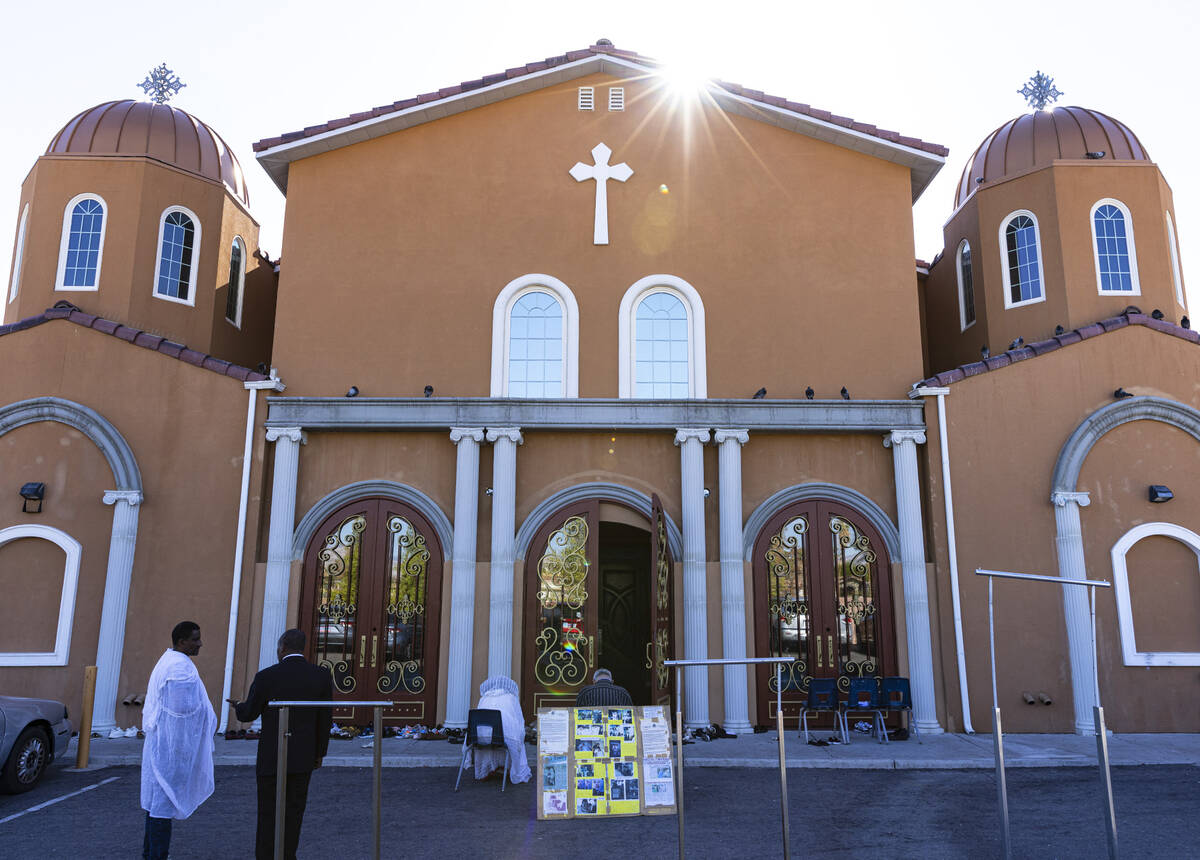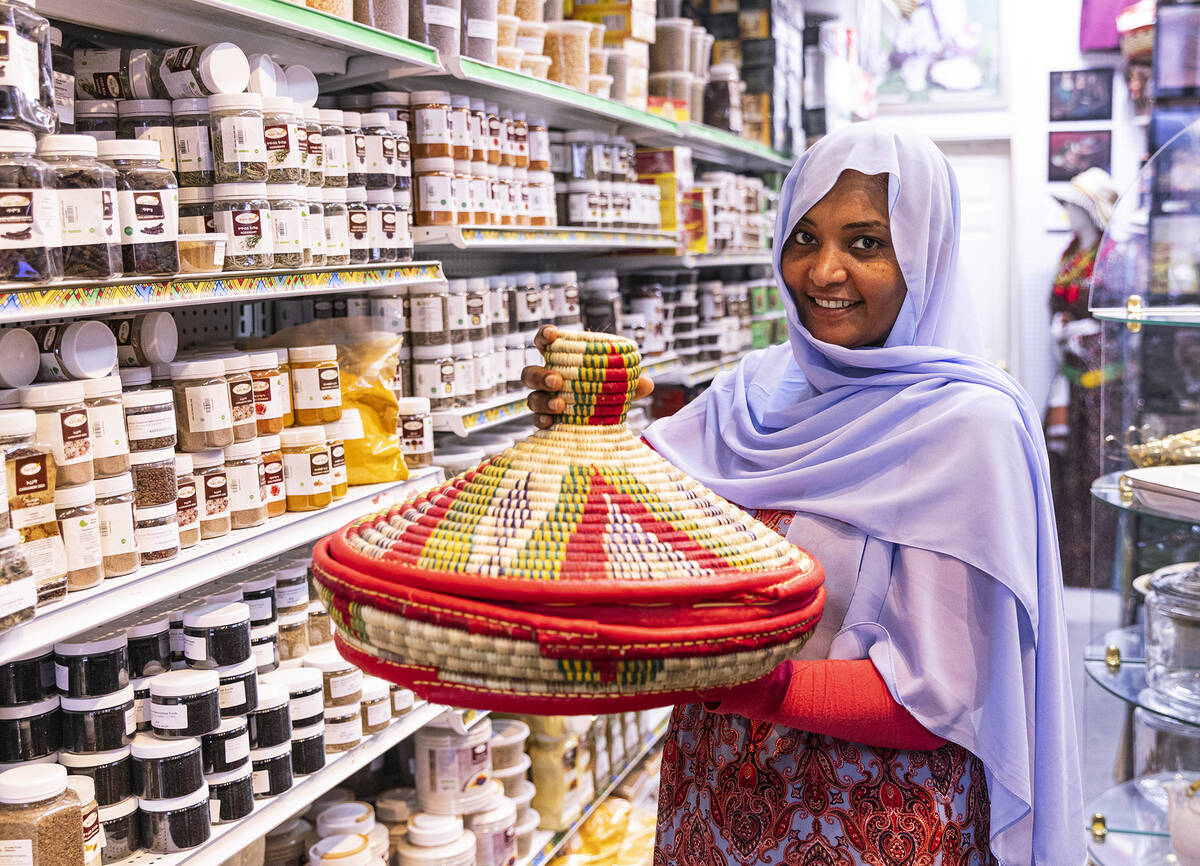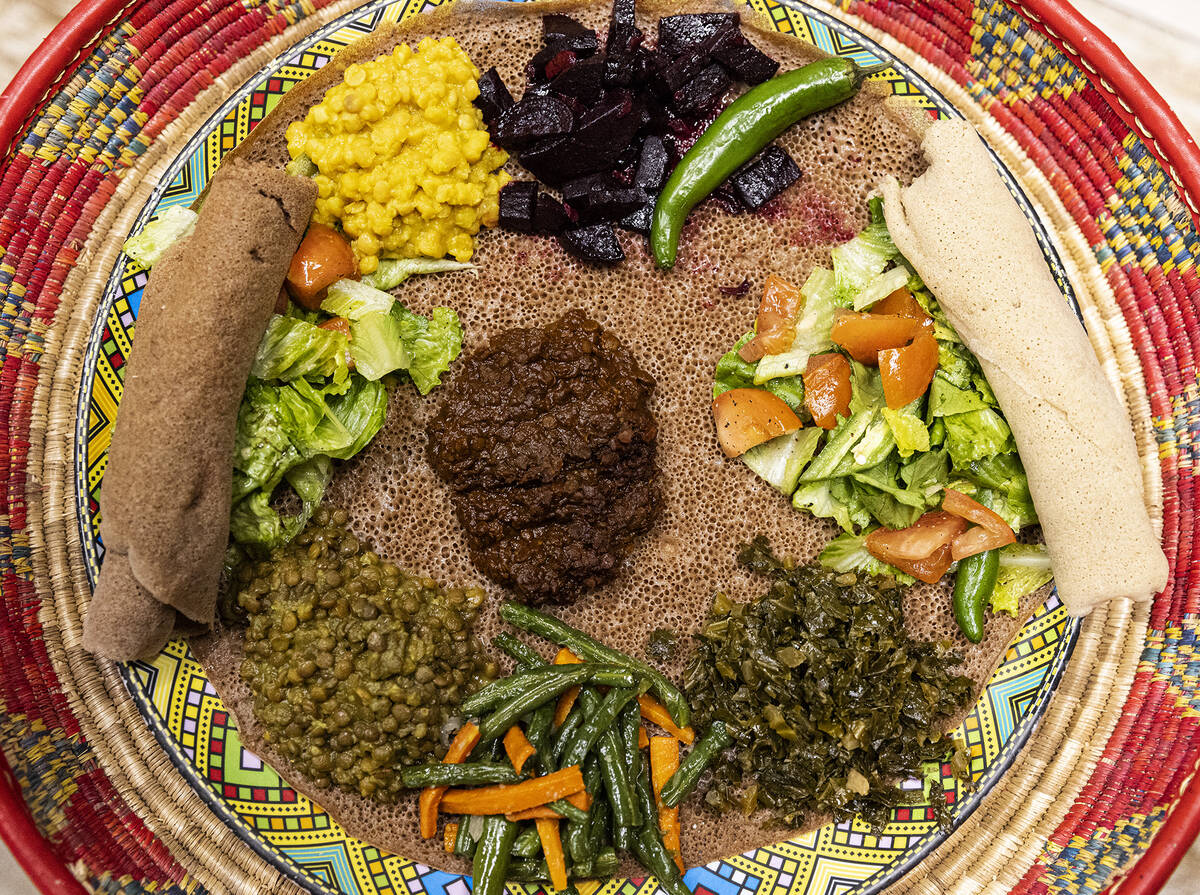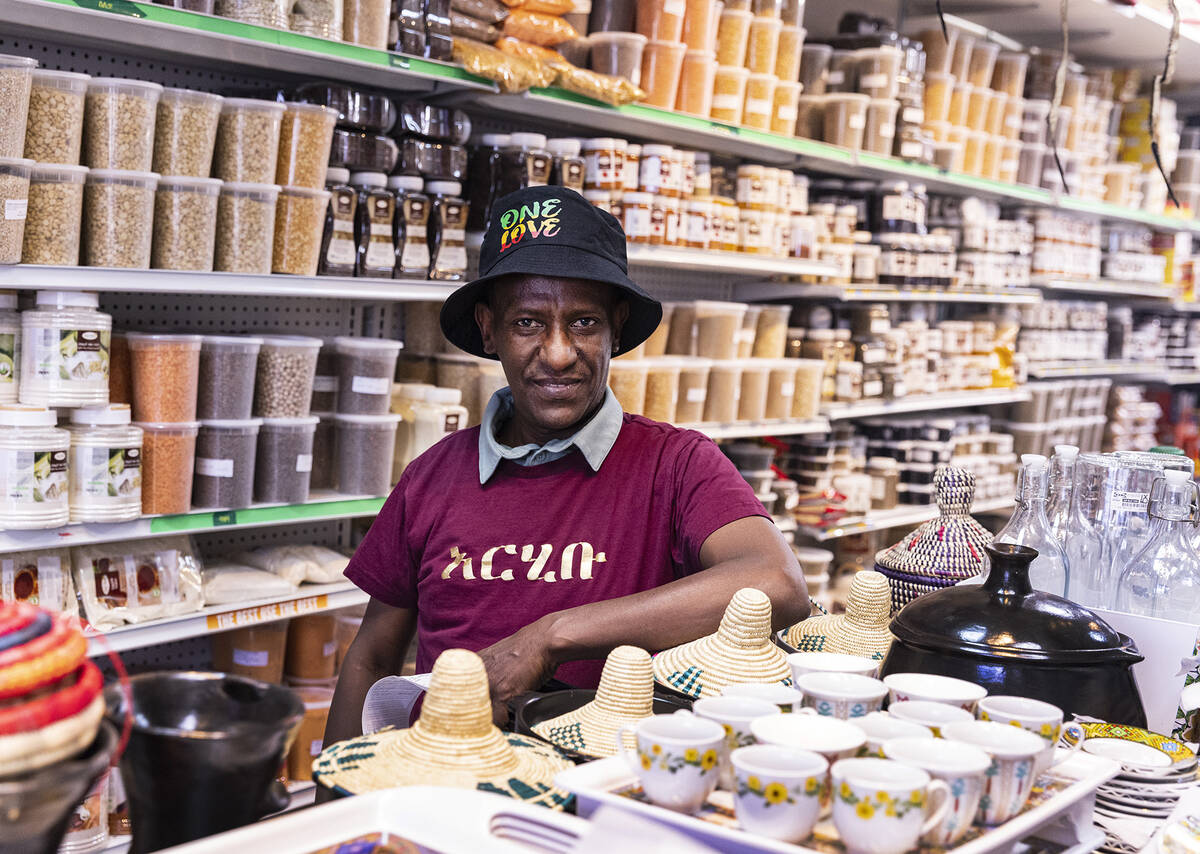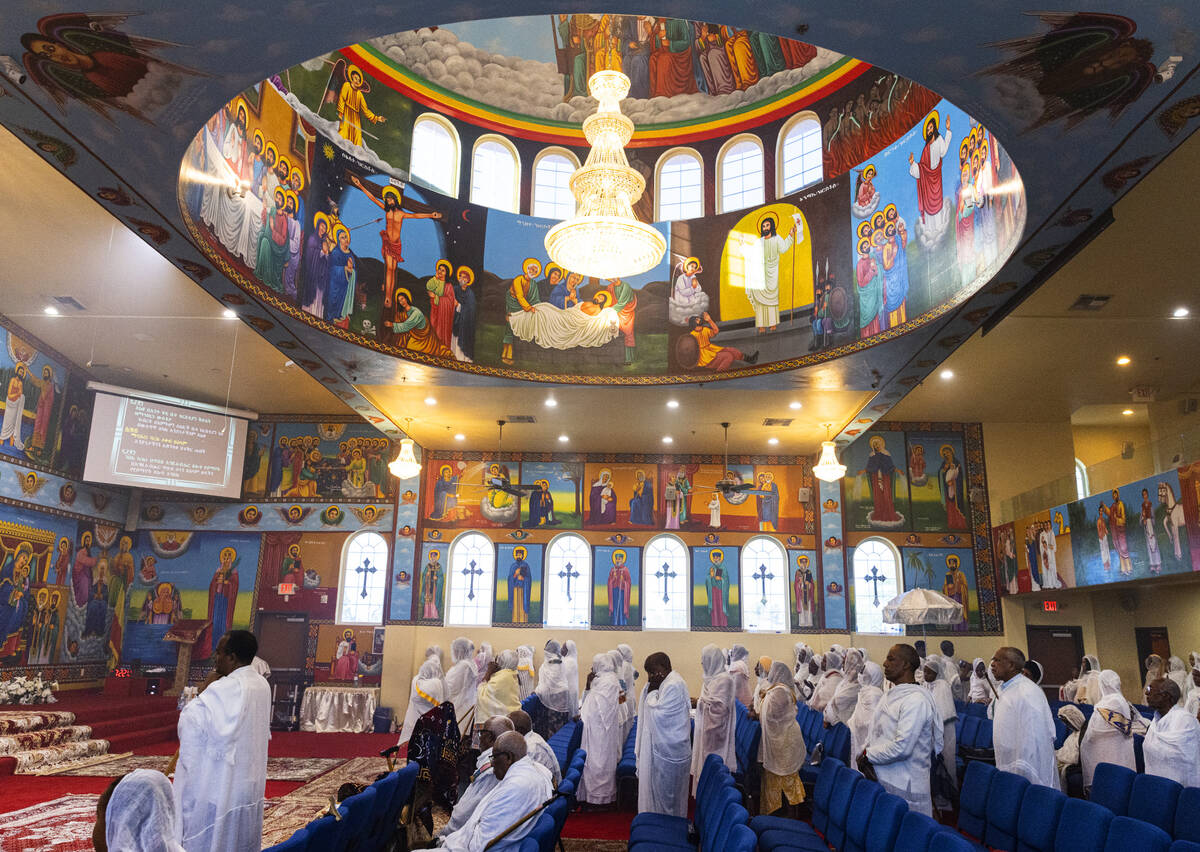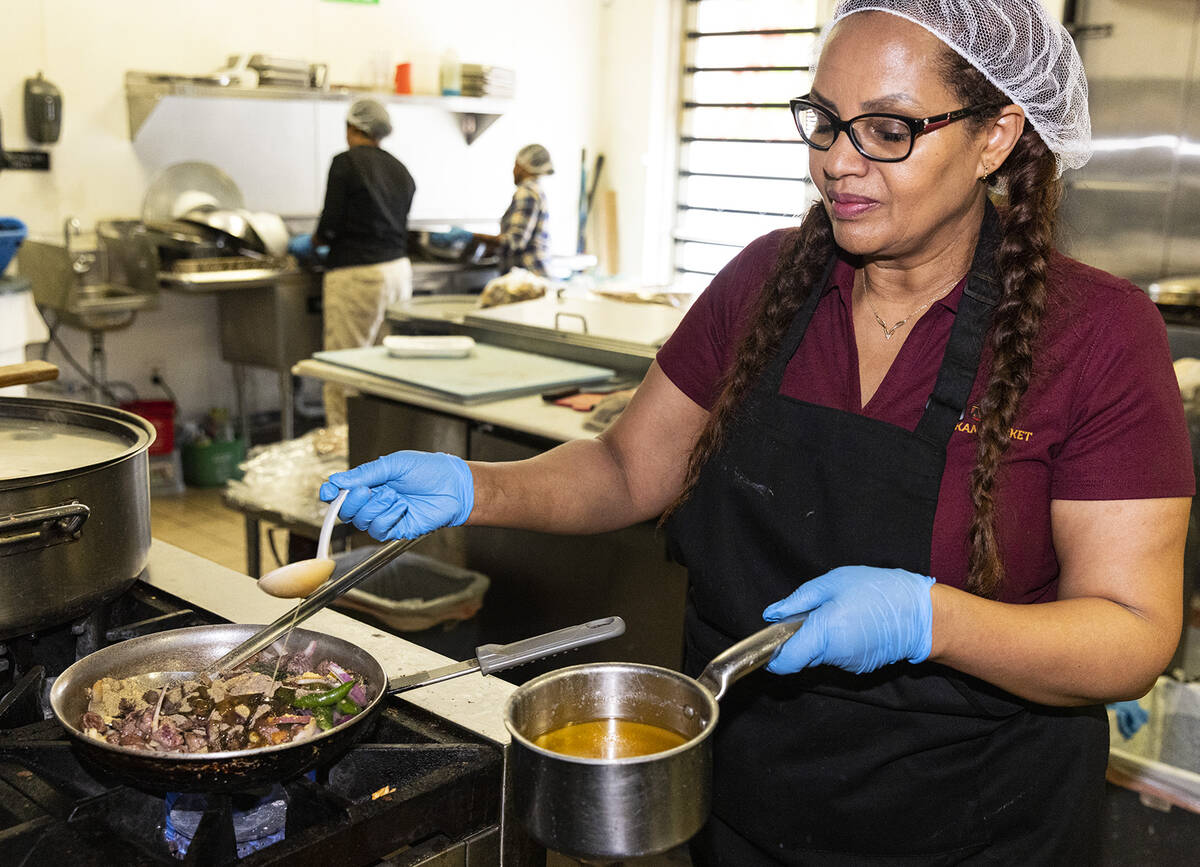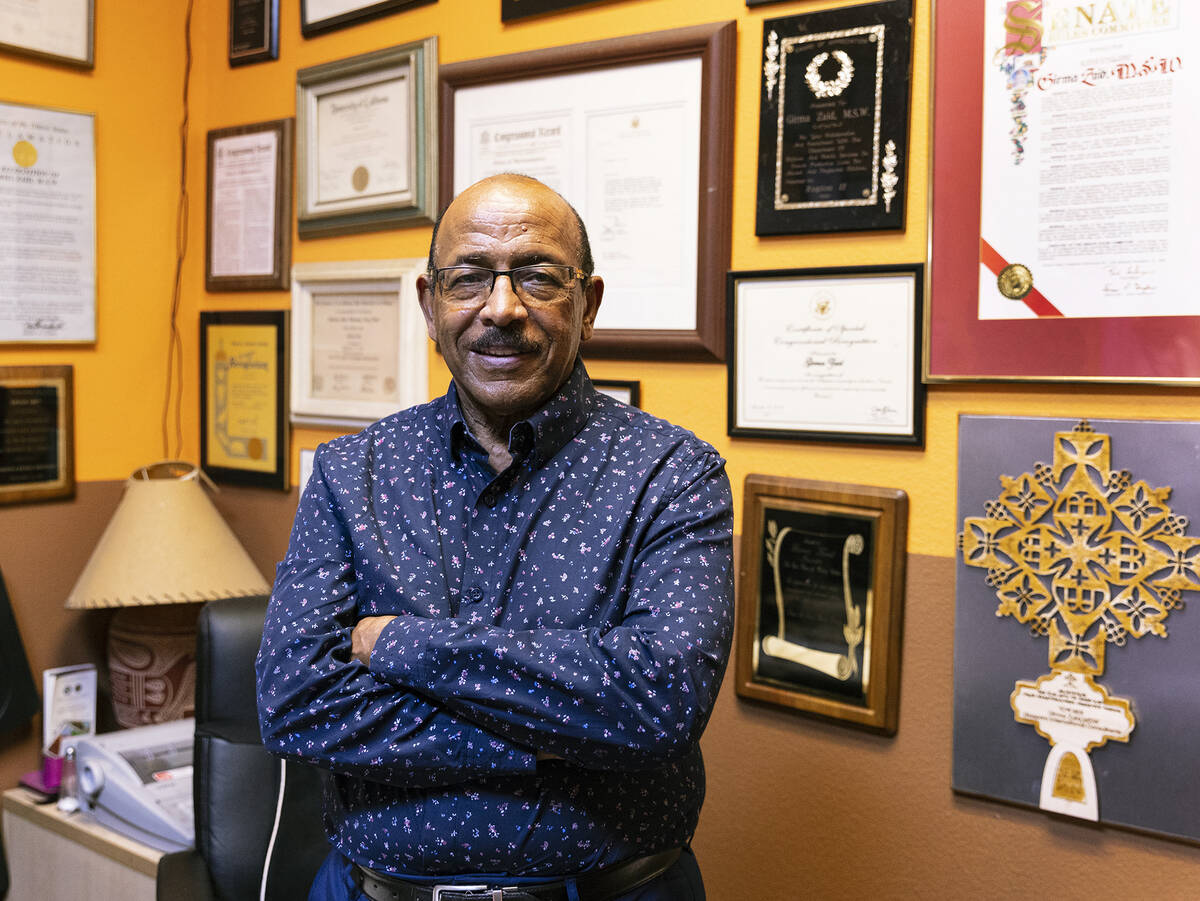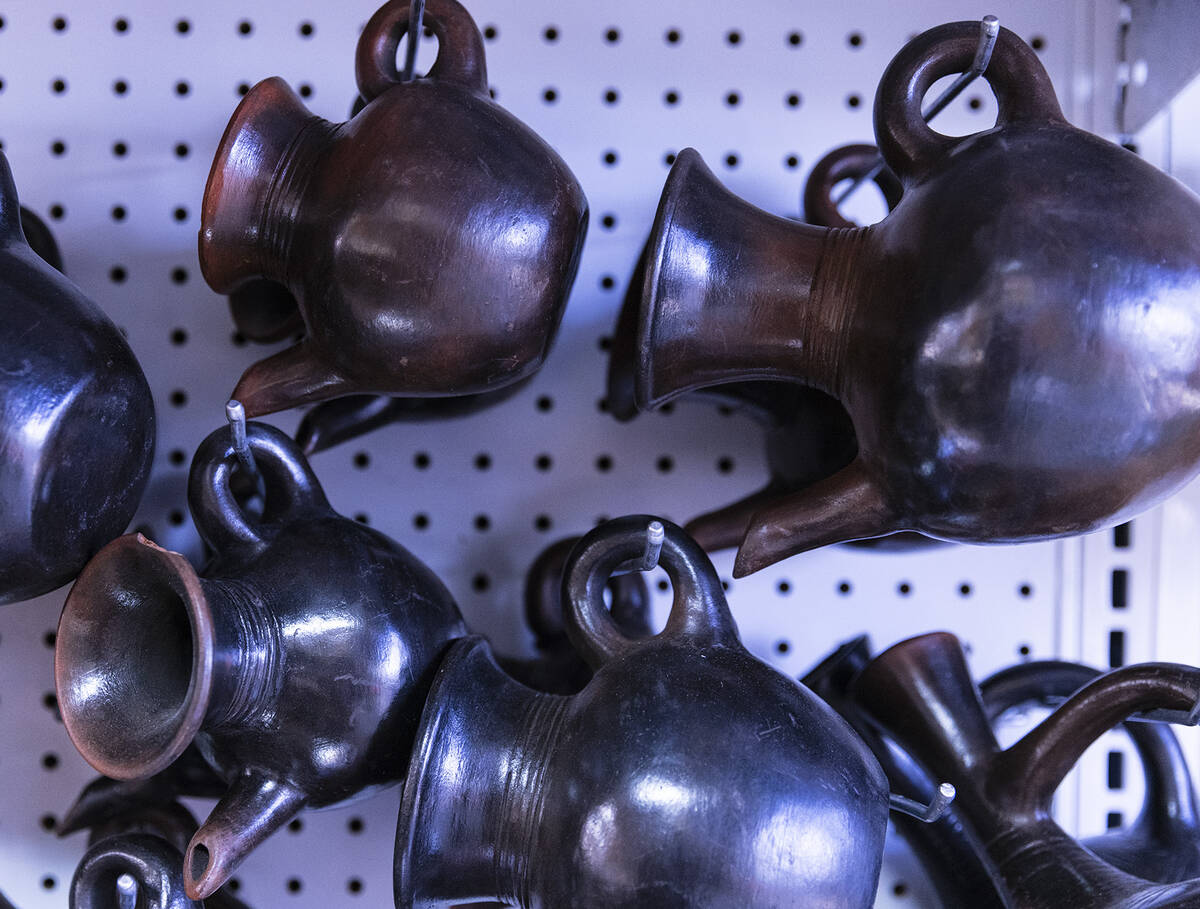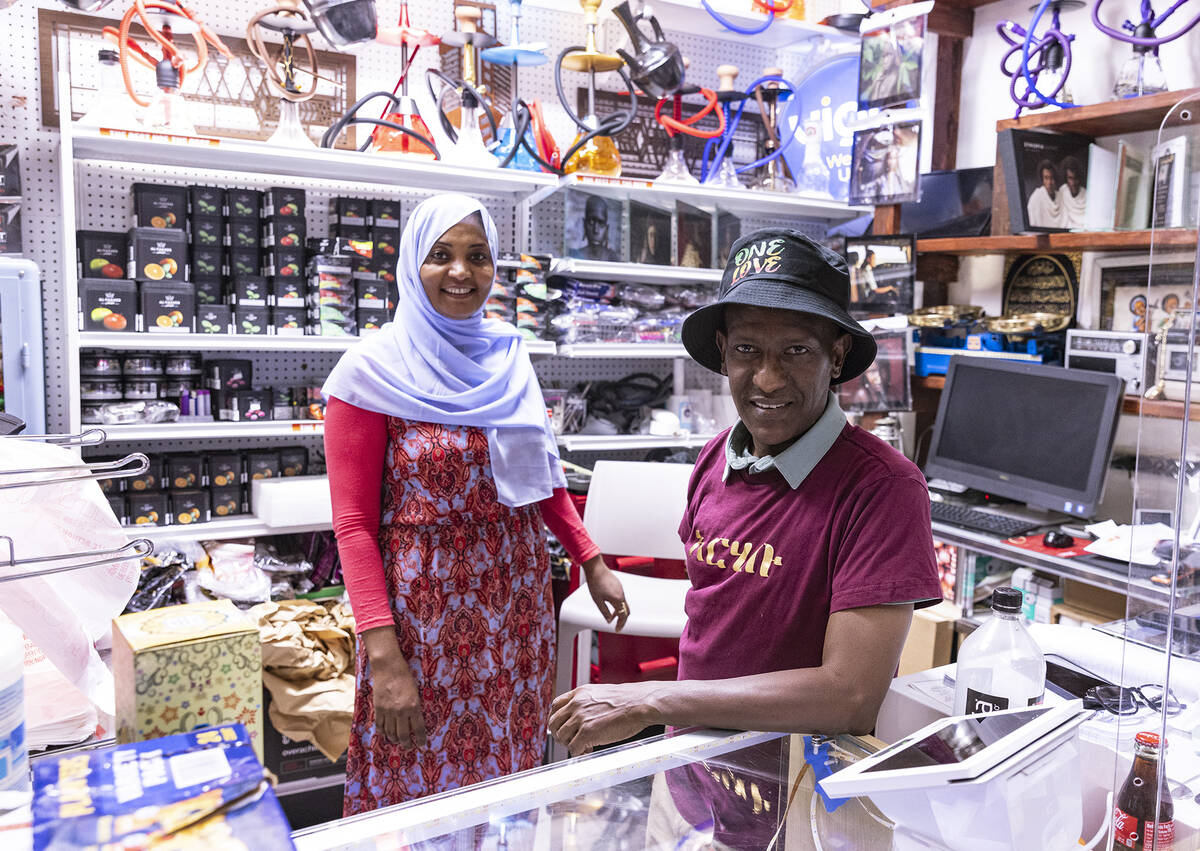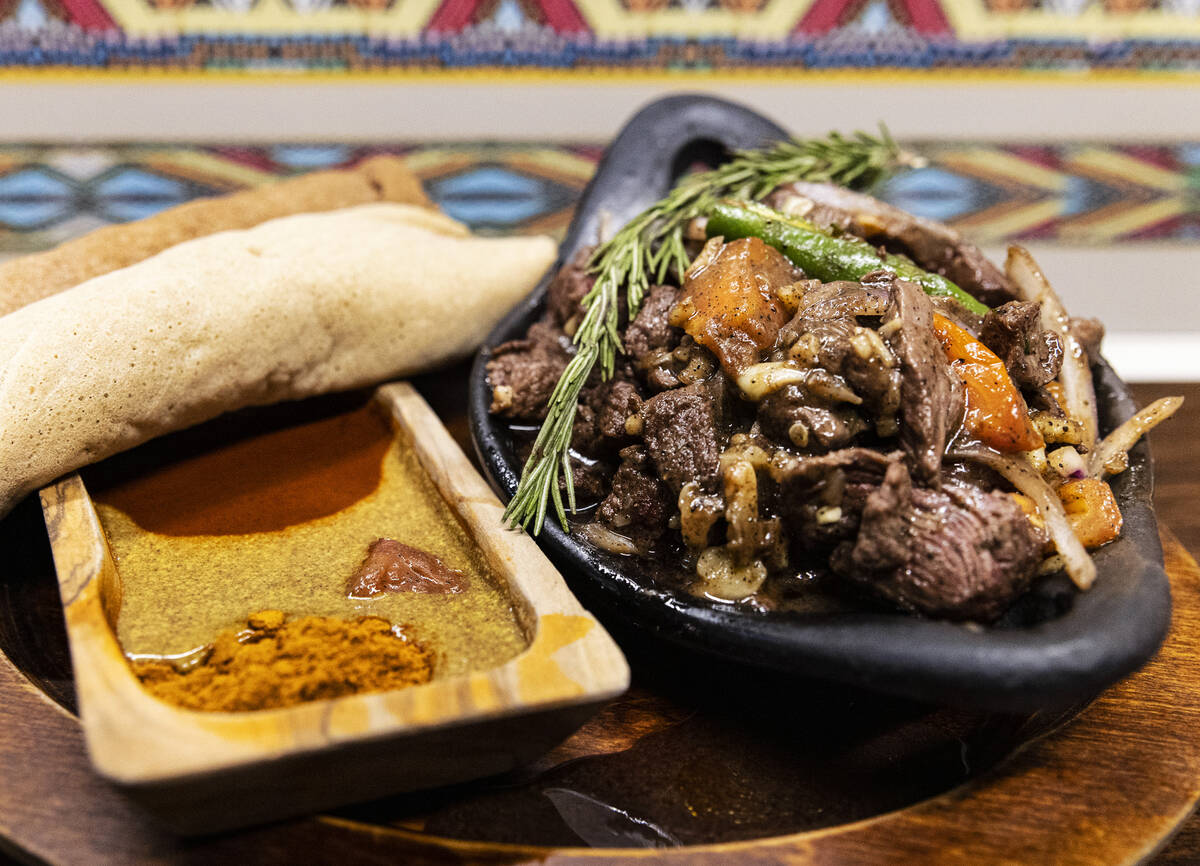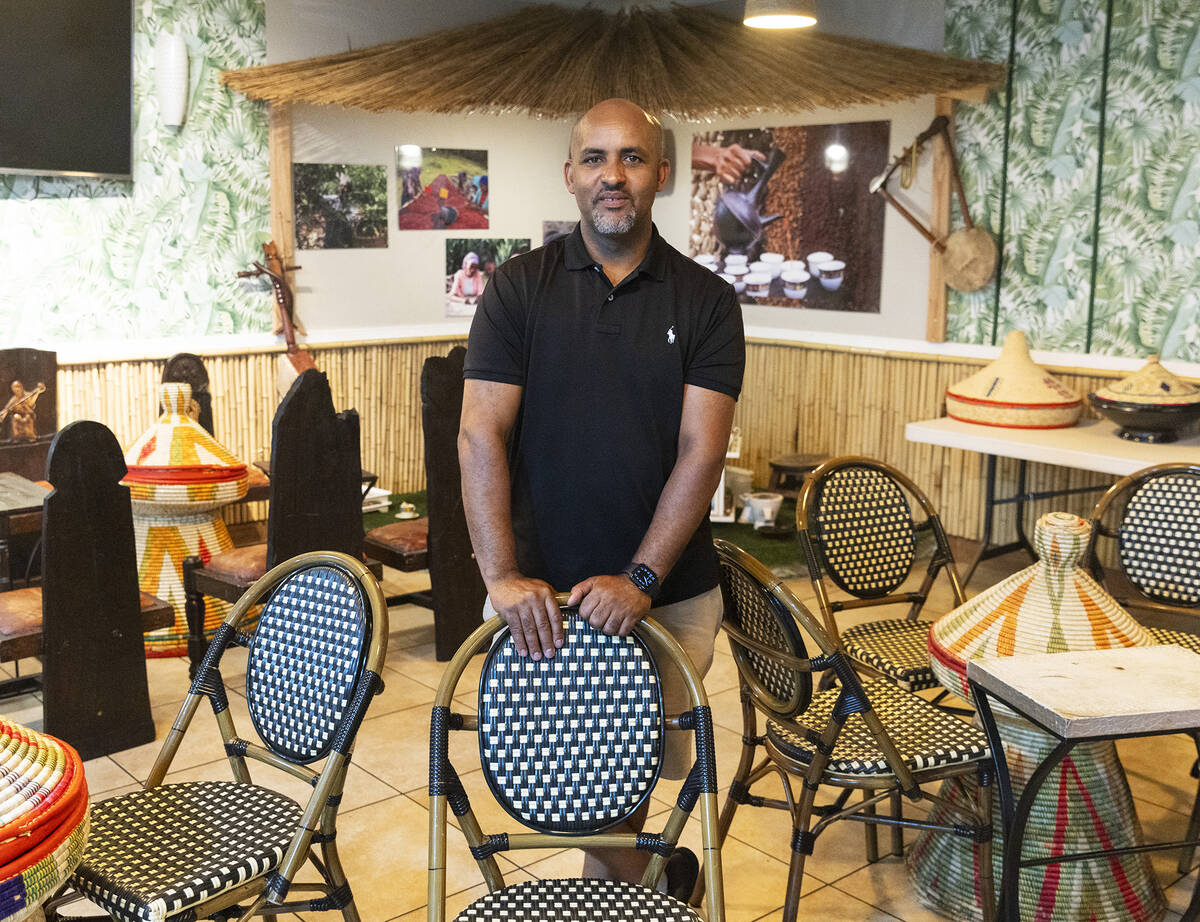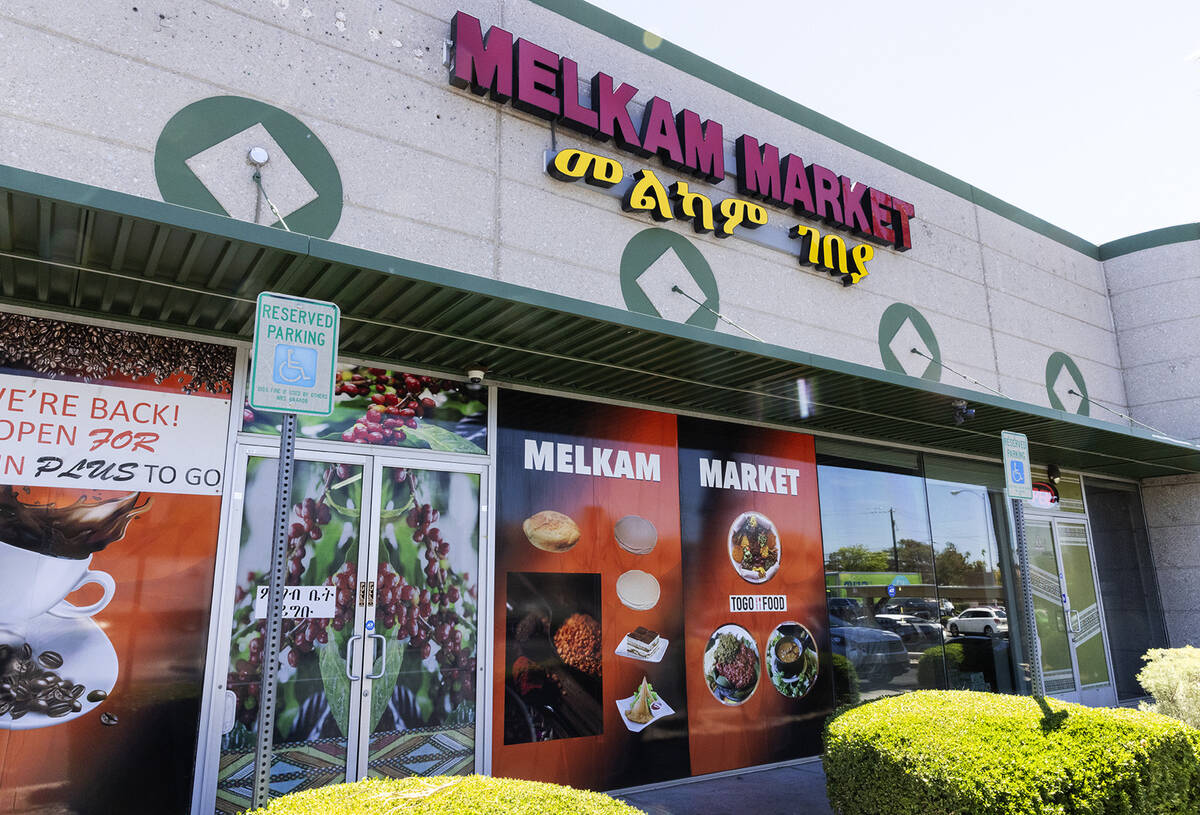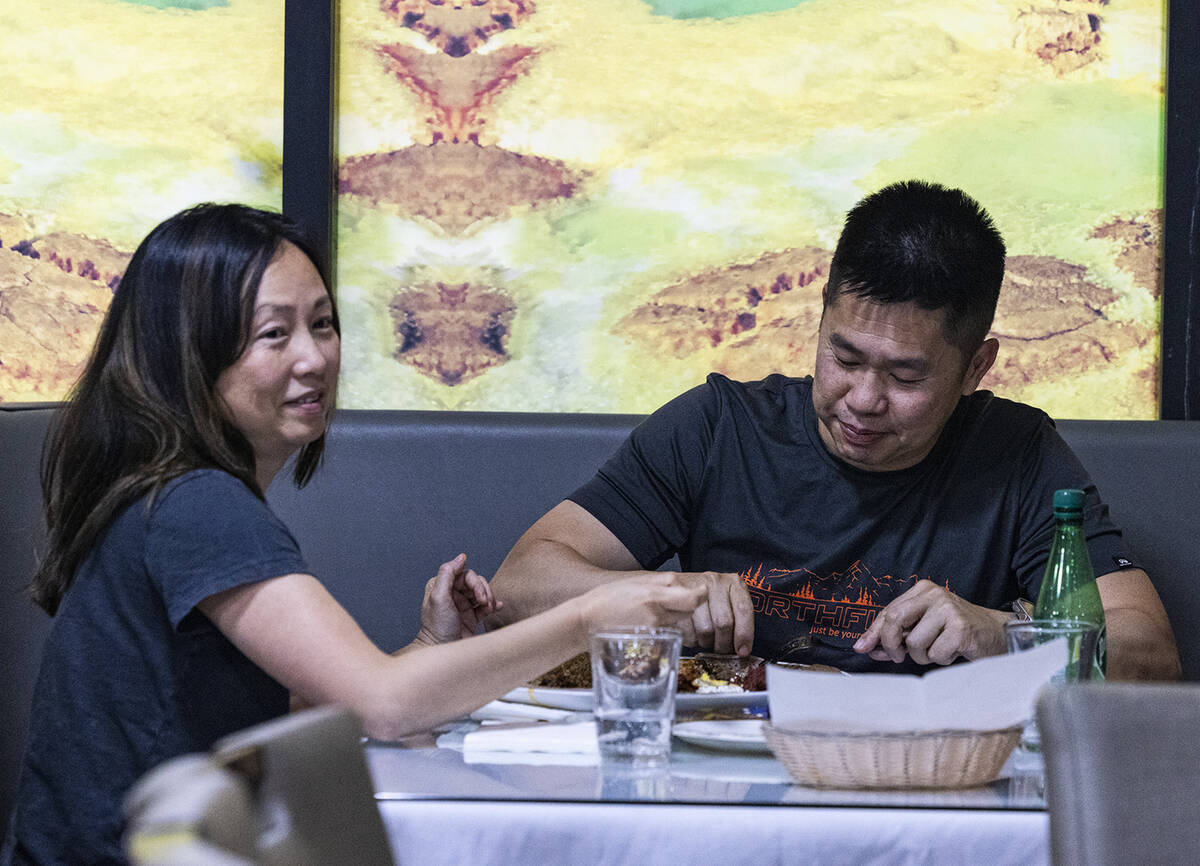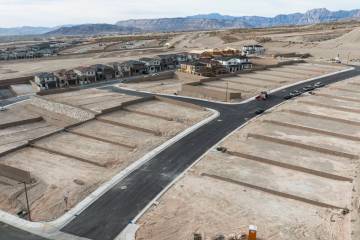‘Little Ethiopia’ business community ready to feel more at home
The Ethiopia native migrated to America with little more than a dream to further his education and a determination to find “a better quality of life.”
“I came here to the United States — in Sept. 18, 1970 — with $75 in my pocket, but with $75 million (worth) of hope and confidence knowing that I’m going to make it here,” Girma Zaid said in a recent interview from his Las Vegas office, which is decorated with artifacts representing his East Africa homeland.
The U.S. offers a choice between failure and success, he said, and he chose the latter.
One of his greatest achievements is being instrumental in the creation of Little Ethiopia, Clark County’s first official cultural district located in the heart of the valley.
The hub — located between Twain and University avenues, near Decatur Boulevard — is populated by more than 70 Ethiopian-owned businesses and apartment complexes with a strong Ethiopian presence.
More than 40,000 Ethiopians and Eritreans call Southern Nevada home, according to the Ethiopian Community Center of Las Vegas, which has a subcommittee that applied for the cultural district designation.
Much like other Ethiopian-Americans the Las Vegas Review-Journal recently spoke to, Zaid highlighted the hardships experienced while chasing the American dream.
They include uprooting their lives, learning a new language and finding ways to maintain their identities while fusing the cultures of two significantly different countries.
“It was very, very very difficult,” he said. “As you know, that is your origin, and that was your umbilical cord still connected to Ethiopia,” he added. “So, to cut it off and come to a country and to try to assimilate, was one of the toughest endeavors and challenges that I had.”
The Little Ethiopia designation process lasted nearly four years but was made official by the Clark County Commission in June. Organizers and officials hope it serves as a footprint for other, future cultural districts.
According to a proclamation, the district “will help preserve and celebrate the culture, commerce, food, celebrations and religion” of the Ethiopian community.
Zaid said the designation is more than symbolism.
“Symbolic is only subject to just naming the names,” he said. “But there’s a whole lot of work behind the name.”
Zaid and the subcommittee he chairs envision a booming commercial epicenter that showcases Ethiopian’s 3,000-year legacy — the “Land of Lucy,” where the oldest known primate remains were discovered, and a country that yearly experiences “13 months of sunshine.”
They want it to not only be a home for Ethiopians to socialize, but for other locals and tourists from the nearby Strip to experience the unique, friendly hospitality.
“We have a history to tell to anyone who may want to visit this wonderful district,” Zaid said.
The center also wants to expand to offer more social services and to educate new immigrants about the U.S. experience.
“As an American, I want to be able to say, ‘This is what America is all about,’” Zaid said. “This is a land of plenty of opportunity for everyone, you just need to go get it, and it does not happen by accident. You have to put a lot of work.”
A large-scale celebration to commemorate the district’s designation is planned for October.
‘They always come back’
The aroma of roasted coffee, prepared in a traditional Ethiopian ceremony by Aster Yoseph, permeated inside Lucy Ethiopian Restaurant and Bar one recent afternoon.
Co-owner Woldu Tereda said he spends up to 20 hours a day at the locale, which he opened with partners in 2015.
Migrating from Ethiopia 23 years ago caused nostalgia about missing home and stress about learning English, he said.
“It was so hard,” said Tereda, 47. “I was so lonely.”
At Lucy, Ethiopian food rich in vegetables, beans, protein and spices is typically served on large circular plates called a “gebeta.”
Diners sit in a circle and use their fingers to share meals served with “Injera,” a sour, spongey bread that resembles a hollow pancake.
“That makes them a little panicked,” he said. “Once they start eating it, they really like it, they love it, they always come back.”
Jena Huynh and James Chin have been regulars at Lucy for about five years.
Natives of Los Angeles, home to its own “Little Ethiopia,” the couple were looking for the same culinary experience.
“I know why we keep coming back to Lucy,” Huynh said, mentioning the quick service and delectable dishes.
“The staff, they’re super nice,” Chin said. “They always greet us with a warm smile.”
Tereda said that increased attention through the cultural district initiative has kept his staff busy.
Nowadays, Tereda doesn’t experience loneliness. He described regular get-togethers with his core group of dozens of friends.
“We like to be with people, we like to eat with people, we like to be surrounded by people,” Tereda said. “We are so happy, it looks like we’re not missing anything, except being back home, because home is always home.”
He said he would like to see Little Ethiopia include community centers geared toward elderly population, so they, too, can never feel alone.
‘We’re not just Ethiopian’
Sirage Awoll opened Unity Market, which sells a variety of spices, cookware and other groceries, four years ago.
“It was a small store, and now it’s getting bigger, and the business is very good,” said Awoll, 45.
Before moving to Las Vegas a decade ago, he was a limo driver in San Jose, California.
“When I come here, there was already a lot of Ethiopians living here,” he said. “I’ve seen the community getting bigger and bigger.”
He and his wife, Fatuma Mengesh, have two grown children, who got “a good chance to be born here,” he said.
While there are cultural differences, he said, “It’s good to be in the USA.”
His entrepreneurial philosophy? “They shop, we give them the culture and the food.”
At Melkam Market, women spread Injera batter into circular cooking pans, while head chef Eleni Tefera Belete fixed a meat-and-vegetables dish at an adjoining stove.
Her husband, Mehari Merhe, beamed with pride, noting that Belete had dreamed of opening a market, restaurant and bakery.
Growing up, the couple were neighbors in Ethiopia and didn’t fall in love until after they reconnected in Boston.
“She’s the mastermind who created this place,” he said.
She added: “This is my passion, I just tell him we’re going to create an Ethiopian restaurant and a market.”
Merhe touts that the staff of about a dozen is multicultural and that they aim to attract customers from every background.
“We’re not just Ethiopian,” he said. “Everybody who comes is welcome, It’s like America.”
Asked if he missed home, he added, “I feel at home, 100 percent.”
Contact Ricardo Torres-Cortez at rtorres@reviewjournal.com. Follow @rickytwrites on Twitter.



